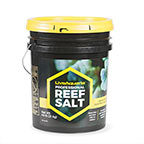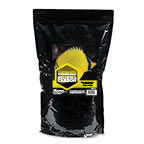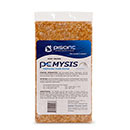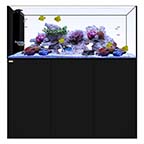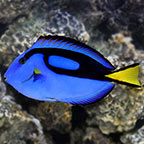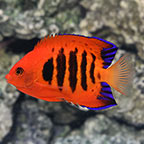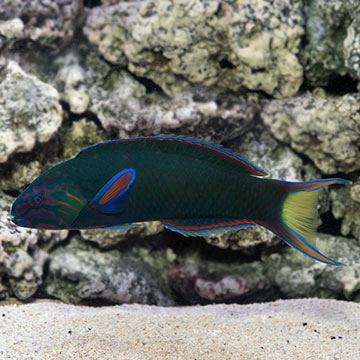
Additional locales and sizes may be available!
Additional locales and sizes may be available! Email me when availableQuick Stats
What do these Quick Stats mean? Click here for more information
What do these Quick Stats mean? Click here for more information
Overview
The Lyretail Wrasse is also referred to as the Lunare Wrasse or Moon Wrasse. Juveniles are blue on the lower half of their body, with a black spot in the middle of the dorsal fin and a black blotch on the caudal fin base. As the fish matures, the black blotch will start turning into a yellow crescent. Their body will begin turning green with bright facial and fin markings.
The Lyretail Wrasse should reside in a 125 gallon or larger aquarium with larger, aggressive tank mates, and plenty of rocks for hiding. It will become territorial and harass any new additions to the community, therefore, it should be the last fish added to the aquarium. It may be kept with a mate if the aquarium is 150 gallons or larger. It may eat mantis shrimp and bristleworms. It does not eat corals or live plants.
The Lyretail Wrasse diet should include vitamin enriched frozen mysis shrimp, vitamin enriched frozen brine shrimp, and other meaty foods along with a high quality marine flake and marine pellet food.
Approximate Purchase Size: Small: 1" to 2"; Small/Medium: 2" to 3" Medium: 3" to 4"; Large: 4" to 5"; X Large: 5" to 7"
Supplies You May Be Interested In
Customer Testimonials
I love my Wrasse. He is one of my favorite fish. I got him a year ago - he is still about 5 inches long and very active. Great fish.



